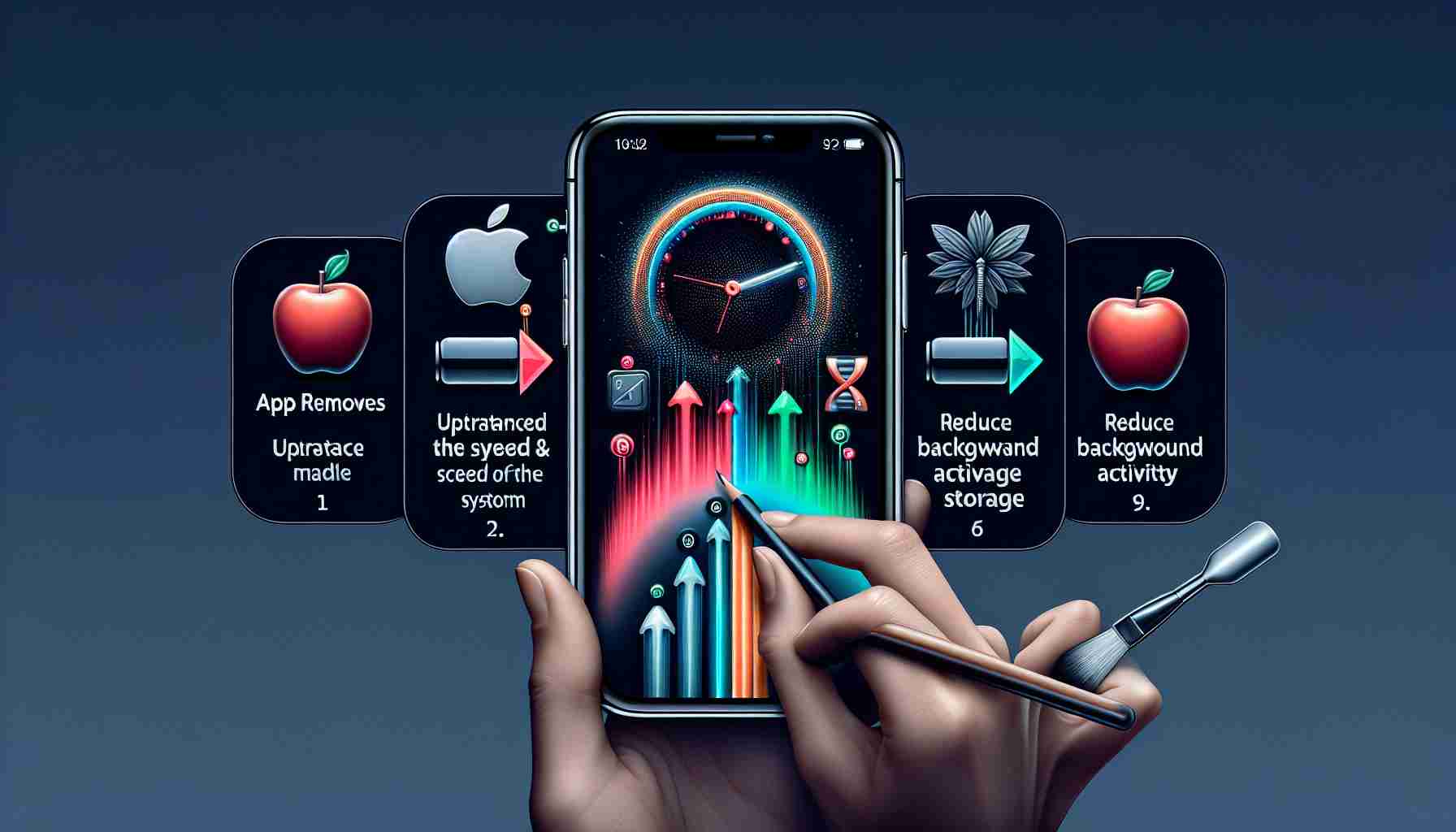Is your iPhone running slower than usual? No one enjoys dealing with lagging, buffering, or app freezing. Luckily, there are a few simple ways you can speed up your iPhone and reclaim its optimal performance.
1. Restart your iPhone: The classic tech advice of turning it off and on again actually works. Restarting your iPhone helps refresh its RAM and optimize performance. It’s the easiest and most effective hack to start with.
2. Clear Safari Data: Accepting cookies on your browser results in accumulated files on your device over time, which can slow down your phone. Clear your Safari cache regularly by going to Settings, selecting ‘Safari,’ and tapping ‘Clear History and Website Data.’
3. Free Up Space: Insufficient storage is a common cause of sluggish iPhone performance. Check your storage status in Settings under ‘General’ and ‘iPhone Storage.’ Review large attachments, photos, and videos taking up the most space and delete them to free up storage.
4. Update iOS: Keep your iPhone running smoothly by updating to the latest iOS software version. Enable automatic updates by going to Settings, selecting ‘General,’ ‘Software Update,’ and turning on automatic updates.
5. Turn Off Automatic Downloads and Background App Refresh: Prevent power-hungry apps from running in the background by disabling automatic downloads and background app refresh. Go to Settings, ‘App Store,’ and ‘General’ to make the necessary adjustments.
Remember, closing background apps won’t significantly impact performance or battery life, contrary to popular belief. It’s a tech myth that has been debunked.
By following these five strategies, you can enhance the speed and responsiveness of your iPhone. Don’t let slow performance hinder your productivity and enjoyment of using your device. Give your iPhone the boost it needs for seamless performance.
The iPhone has become an essential device for many people today, serving not only as a phone but also as a powerful computer in your pocket. However, as with any electronic device, over time, it may start to slow down and not perform at its optimal level. This can be frustrating for users who rely on their iPhones for various tasks.
To understand the broader landscape of the industry, it is important to note that Apple’s iPhone is part of the larger smartphone market. According to market research firm IDC, the global smartphone market is projected to grow at a CAGR of 7.9% from 2021 to 2026. This growth can be attributed to factors such as technological advancements, increasing internet penetration, and the rising demand for smartphones in emerging markets.
One of the key issues related to the iPhone and other smartphones is the constant need to improve their performance. As smartphones become more advanced, they require more processing power and memory to run the latest apps and operating systems. This can put a strain on the device’s resources and potentially result in slower performance.
Additionally, the iPhone’s operating system, iOS, is regularly updated by Apple to introduce new features, fix bugs, and enhance performance. It is important for users to keep their iPhones up to date with the latest iOS version as these updates often include optimizations that can improve the device’s speed and responsiveness.
However, there are also some challenges associated with updating the iOS. Some users may be hesitant to update their iPhones due to concerns about compatibility with older apps or changes in the user interface. It is important for Apple to address these concerns and ensure that the updates are seamless and beneficial for all users.
Furthermore, the issue of insufficient storage is a common problem that can affect the performance of an iPhone. As users download and store more apps, photos, videos, and other files on their devices, the available storage space can quickly fill up. This can lead to slower performance and even app crashes. Apple has introduced features like “Optimize Storage” and “Offload Unused Apps” to help users manage their storage more efficiently.
In conclusion, while the iPhone is a powerful device, it may experience slower performance over time. By following the strategies mentioned in the article, such as restarting the device, clearing Safari data, freeing up space, updating iOS, and managing background app refresh, users can improve the speed and responsiveness of their iPhones. With the continuous growth of the smartphone market, it is crucial for Apple to address user concerns and provide regular updates to ensure optimal performance for its devices.
The source of the article is from the blog reporterosdelsur.com.mx
